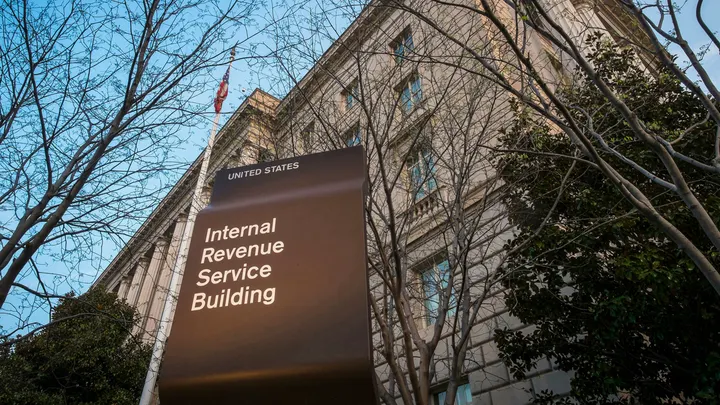The 2023 tax season is well underway, and the IRS has one request for Americans looking to get their refund faster: File your return electronically and as soon as possible.
There are some steps that taxpayers can take in order to get their money back faster. Experts have urged taxpayers to file their tax returns as soon as possible, noting that individuals do not need previous returns in order to submit their 2022 returns.
Americans are encouraged to file electronically with direct deposit in order to avoid potential delays and receive their return within 21 calendar days.
Individuals who are eager to receive their refund from the IRS should take several steps to ensure a speedy return, according to the tax-collecting agency. That includes filing returns electronically, checking that they are accurate and complete before submitting them, and requesting to receive the refund via direct deposit.
Filers should do “whatever they can” to submit their returns electronically, according to Tom O’Saben, the director of tax content and government relations at the National Association of Tax Professionals.
“Filing a paper return would probably be the worst idea of all, even though the IRS has hired additional staff,” O’Saben told FOX Business. “They’re still dealing with a backlog from last year. The difference would be measured in months, instead of weeks if someone were to do a paper return instead of electronic filing.”
As of February 18, IRS said it had 2 million unprocessed individual returns. These include tax year 2022 returns, 2021 returns that need review or correction and late filed prior year returns. Of these, 1.79 million returns require error correction or other special handling, and 206,000 are paper returns waiting to be reviewed and processed.
There are other methods to get a refund faster: O’Saben said taxpayers should request to receive the money via direct deposit, which he estimated could trim about 10 days off the timeline for return.
One of the most important factors in getting a tax refund as soon as possible is to look over your return before submitting it and make sure there are no little mistakes that could cause the IRS to flag it for further inspection.
“One of the ways to make sure you get your refund as quickly as people is to make sure you have your ducks in a row,” O’Saben said. “Don’t ignore things the IRS catches very quickly.”
For instance, if you bought health insurance through the Affordable Care Act’s marketplace, you need to reconcile your advance payments of the premium tax credit using tax Form 1095-A.
Filers should also double-check their Social Security numbers and make sure they match up to their last name. That goes twice for newlyweds, who may have legally changed their last name but not done so for their Social Security number yet.
“That’s a big one,” O’Saben said.
The IRS says it can take more than 120 days to precess your refund if they need more information or verification from you, depending on how quickly and accurately you respond, and how quickly the IRS can complete the processing of your return. In such cases, you’ll receive a letter from the IRS.
If taxpayers file an electronic return with no issues and opt to receive the refund via direct deposit, the IRS anticipates the money will arrive within 21 days.
With inflation remaining uncomfortably high, a growing number of Americans are counting on their refunds this year: A new survey from Bankrate found that about 75% of adults who expect to receive a tax refund this year believe the money is important to their overall financial situation. About 43% said the refund is “very important,” compared to 32% who described it as “somewhat important.”
But the IRS has cautioned taxpayers to prepare for smaller refunds this year because there were no stimulus payments delivered by the federal government in 2022. So far this year, the IRS said it has issued about 28 million refunds. That number is 26% higher than last year. The average refund amount was $3,140, down 11%.
The tax-filing season ends Tuesday, April 18 this year.
Even if you receive an extension from the IRS to file your taxes, you still must pay any money owed to Uncle Sam by April 18 or face penalties and interest on any amount not paid.

